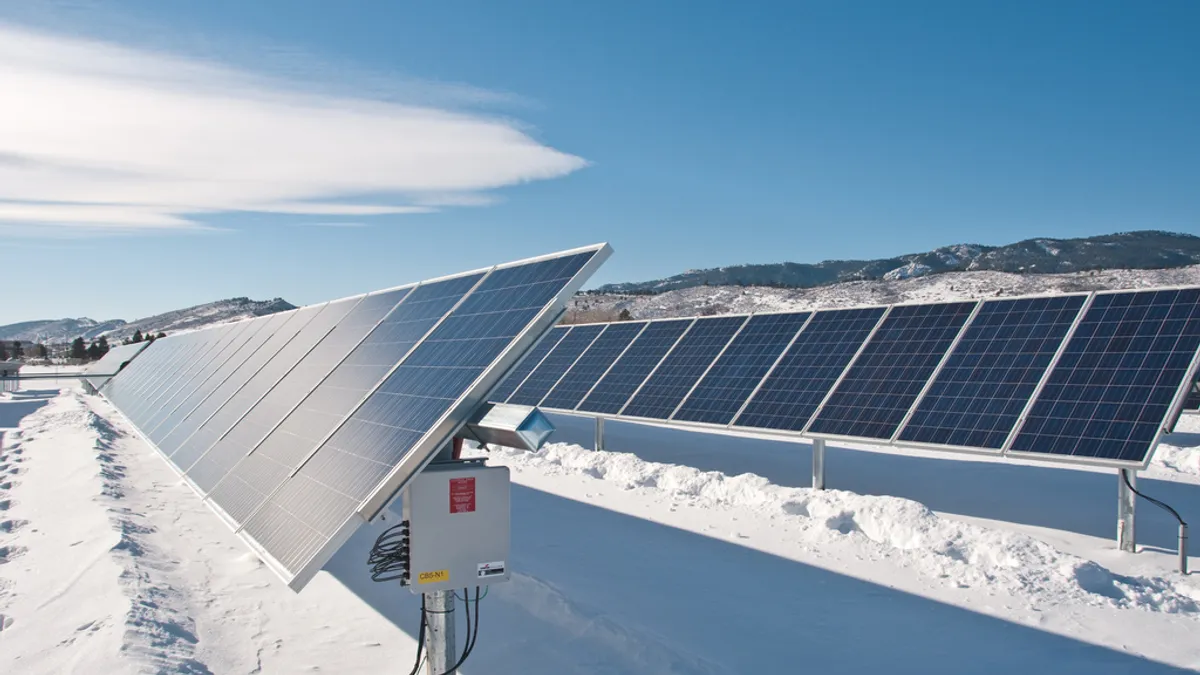Dive Brief:
-
Colorado legislators on Friday passed a comprehensive utility bill that subjects Tri-State Generation and Transmission (G&T) to the Public Utilities Commission's rulemaking and codifies Xcel Energy's clean energy plans, among other things.
-
Tri-State has faced scrutiny for its generation portfolio in the past year — the company supplies power to 43 rural electric cooperatives and some of those members have asked regulators to exit their supplier, seeking cheaper, cleaner power. SB 19-236 would increase oversight of the company's integrated resource plan, which was not previously subject to PUC rulemaking.
-
Approximately half of Tri-State's generation comes from coal and an August report from the Rocky Mountain Institute found the utility's 1 million customers could save $600 million through 2030 by shifting toward renewables. "As Tri-State transitions to our vision of a 21st century G&T, reliability and affordability remain our focus, and we will be member-driven, increasingly flexible and increasingly clean," Duane Highley, Tri-State CEO, said in a statement responding to the bill.
Dive Insight:
As the cost of renewable power drops, more state legislators and regulators are seeing the benefits of pushing their power generators to pursue low-cost, low-emissions electricity.
"Even if you've been getting all of your electricity from coal your entire life, at the end of the day, this is a lot cheaper," Jim Alexee, director of the Colorado Sierra Club, told Utility Dive. "And ... if the result is cleaner air, it's kind of a no-brainer."
Colorado still generates the majority of its power from coal and natural gas, though a bill was introduced to the legislature at the end of March that would require the state to reduce its greenhouse gas emissions 90% economy-wide by 2050.
Xcel Energy, the largest power provider in the state, committed to 100% clean energy by 2050 in December. The Xcel portion of the bill now codifies those goals and allows the utility to own 50% of its future renewable energy assets as it builds out cleaner power.
The utility's power costs are 28.5% lower than its neighboring Tri-State members, causing the exit of New Mexico's Kit Carson Electric Cooperative and ongoing negotiations with Delta-Montrose Electric Association. The G&T's current centralized power model is simply not compatible with the current shift toward a more distributed grid, the president of a former Tri-State member cooperative told Utility Dive in January.
Along with the PUC directive on Tri-State, SB 19-236 directs the commission to develop rules to evaluate how distributed energy resources, such as energy efficiency, battery storage and rooftop solar, can better serve the grid in its transition.
The bill also includes a number of economic justice initiatives. As legislation to phase out fossil fuel plants and move toward a more distributed, renewable portfolio increases, states like New Mexico and Washington are placing a focus on assisting coal-reliant communities and ensuring customers don't bear the brunt of the transition.
Colorado's new legislation establishes securitization measures to refinance fossil fuel assets, shifting risk away from ratepayers, and directs the PUC to consider the social cost of carbon when developing policy proceedings, becoming the 10th state to do so.















